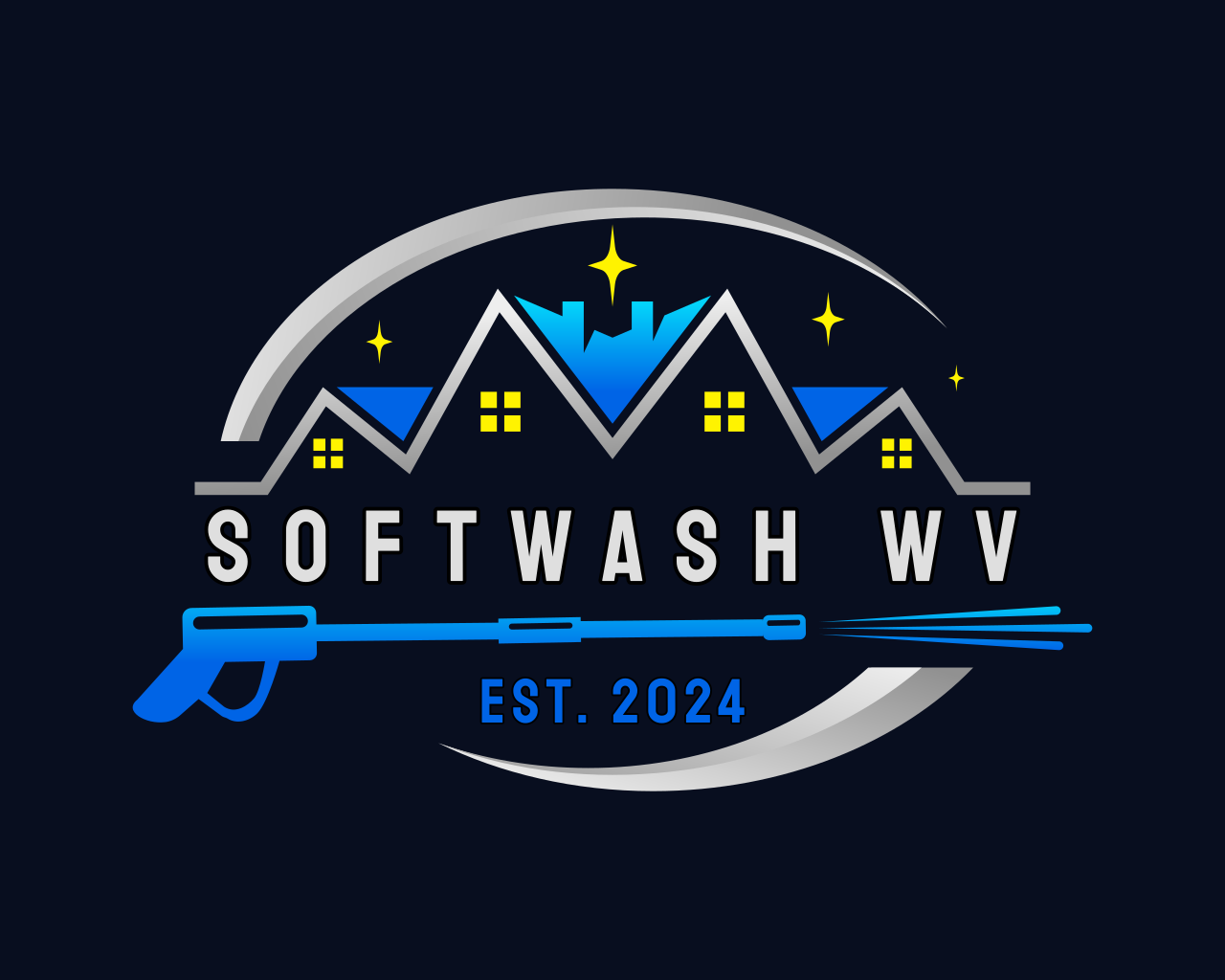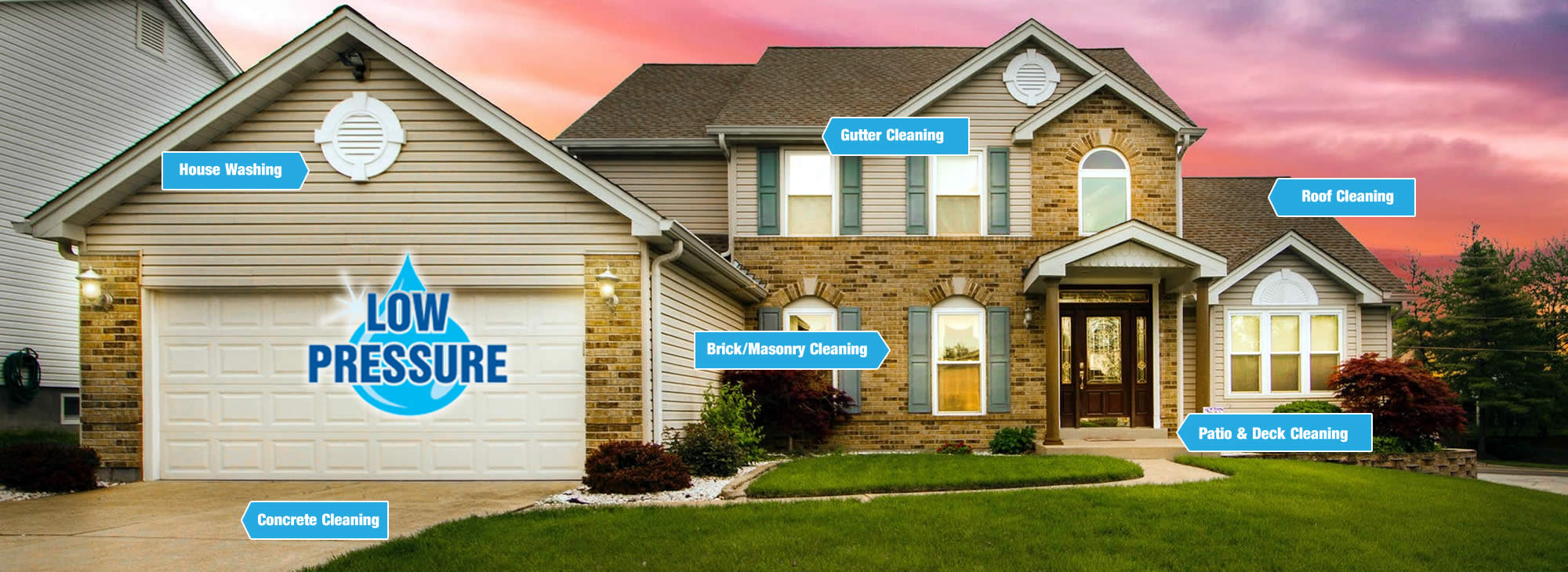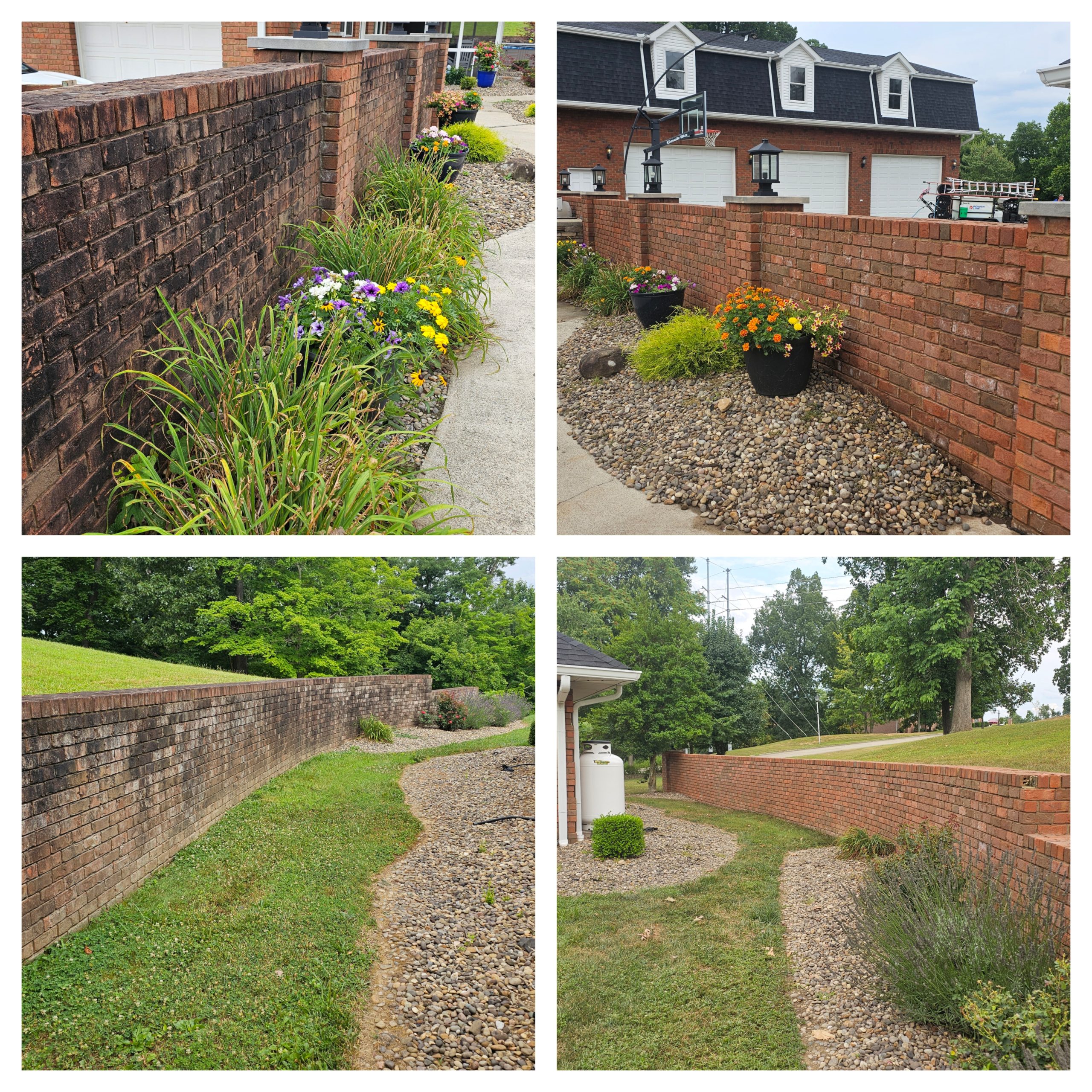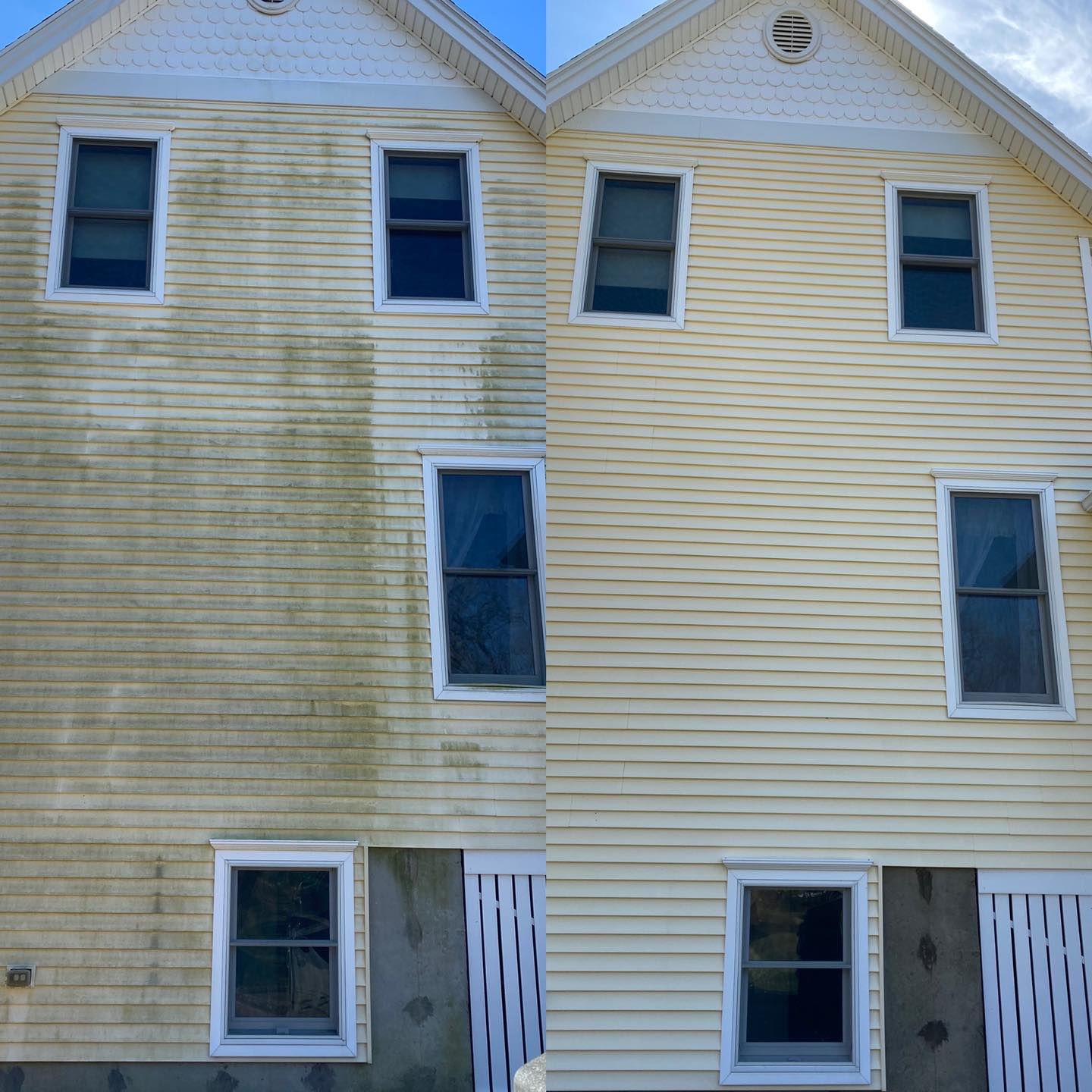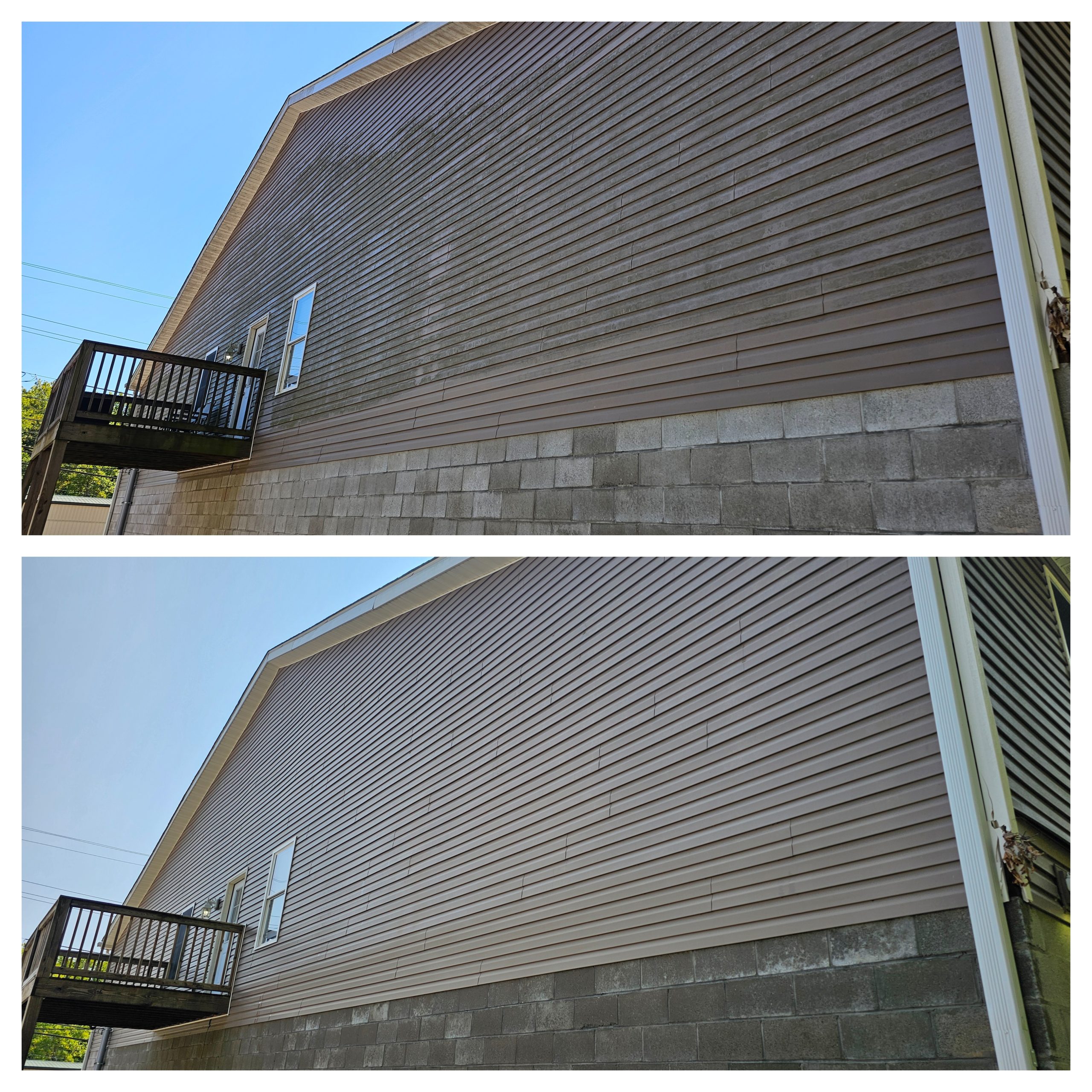When it comes to keeping your property looking pristine, you’ve probably encountered the terms “pressure washing” and “power washing.” While they may seem similar, there’s a critical distinction between the two that can impact your cleaning choices—and your wallet! At SoftWash WV, we’re here to clarify these differences so you can make an informed decision.
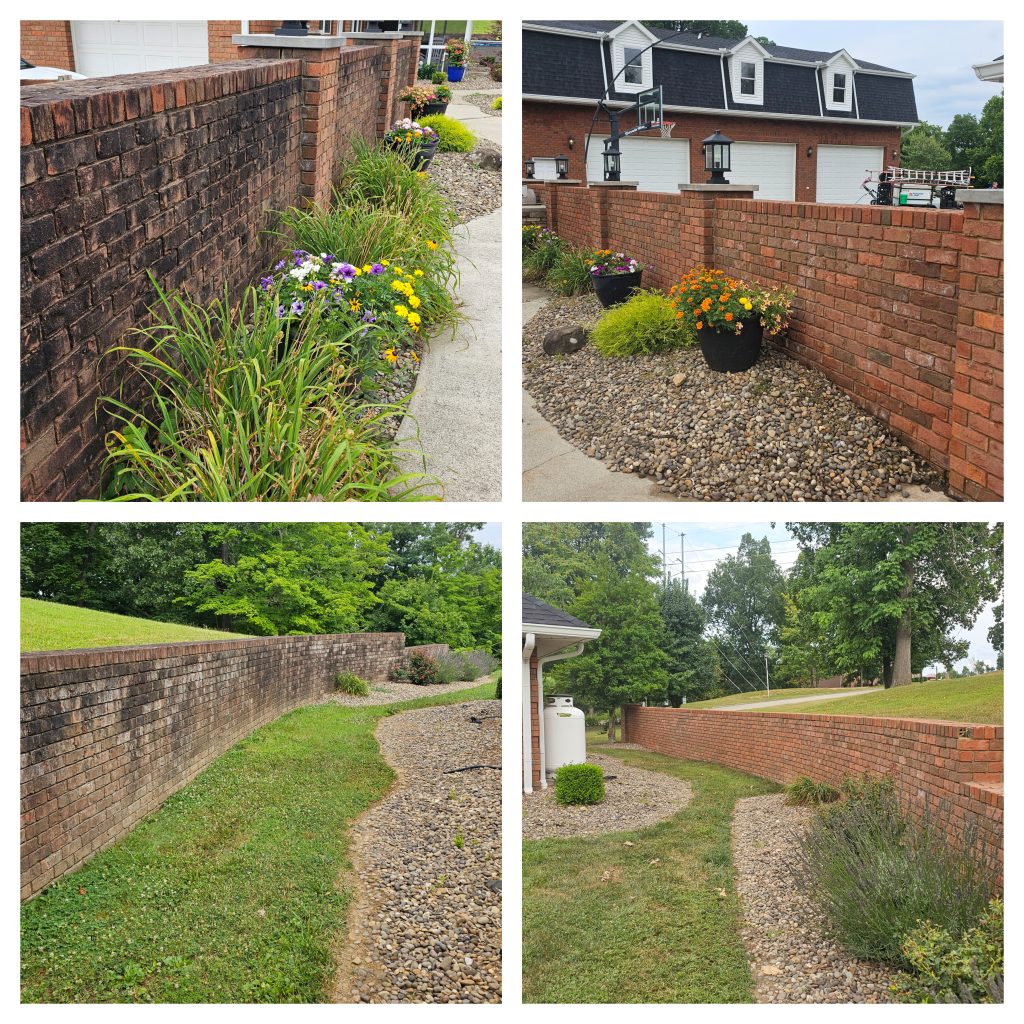
Understanding Pressure Washing
1. What is Pressure Washing?
Pressure washing employs high-pressure water to remove dirt, grime, and stains from various surfaces. It primarily uses cold water, making it a straightforward and effective cleaning method for many residential and commercial applications.
2. Common Uses of Pressure Washing
Pressure washing is perfect for:
- Concrete Driveways: Removes stubborn stains like oil and dirt.
- Vinyl Siding: Helps restore the fresh look of your home.
- Wood Decks: Cleans and preps surfaces for refinishing.
3. Advantages of Pressure Washing
- Cost-Effective: Generally, pressure washing is less expensive than power washing due to lower equipment and operational costs.
- Speed: Quickly cleans large areas.
- Versatility: Can be used on a variety of surfaces without the risk of heat damage.
Understanding Power Washing
4. What is Power Washing?
Power washing is similar to pressure washing, but it includes heated water. This hot water enhances the cleaning process, making it particularly effective for removing tough stains and contaminants.
5. Common Uses of Power Washing
Power washing excels at:
- Grease Removal: Ideal for commercial kitchens and garages.
- Mold and Mildew Elimination: The heat helps eradicate mold spores.
- Heavy-Duty Cleaning: Perfect for warehouses and industrial settings.
6. Advantages of Power Washing
- Enhanced Cleaning Power: The heated water penetrates deep into grime, making it more effective against stubborn stains.
- Faster Drying Time: The hot water evaporates quicker, reducing downtime for surfaces.
- Sanitization: The combination of heat and pressure offers a deeper clean, ideal for health-sensitive areas.
Key Differences Between Pressure Washing and Power Washing
7. Temperature: The Heating Element
The most significant difference lies in temperature. Pressure washing uses cold water, while power washing utilizes heated water. The heat in power washing not only helps break down tough stains but also sanitizes surfaces effectively.
8. Applications and Effectiveness
Both methods are effective for various surfaces, but power washing is particularly suited for:
- Greasy Surfaces: Where heat can dissolve grease better.
- Moldy Areas: Hot water kills mold spores more effectively than cold.
9. Impact on Surfaces
While pressure washing is generally safe for most surfaces, power washing can be too aggressive for softer materials. It’s essential to select the right method to avoid damage.
Cost Comparison: Pressure Washing vs. Power Washing
10. Expense Considerations
- Pressure Washing: Typically less expensive, making it a budget-friendly choice for routine maintenance. The cost usually includes the equipment rental and operator fees without the additional expense of heating elements.
- Power Washing: Higher operational costs due to specialized equipment and heating. The benefits of faster cleaning and better stain removal often justify the expense, particularly for commercial settings or heavily soiled areas.
11. Long-Term Value
Investing in power washing may save money in the long run if you frequently deal with tough stains. The enhanced cleaning efficiency can reduce the frequency of cleaning required, making it a worthwhile consideration for commercial properties.
When to Use Each Method
12. Choosing Pressure Washing
Opt for pressure washing when:
- You’re cleaning residential areas like patios and driveways.
- The surface material is softer and more prone to damage.
- You’re on a tighter budget.
13. Choosing Power Washing
Go for power washing when:
- You have heavy grease or oil spills to clean.
- You need to sanitize moldy areas.
- Cleaning large commercial spaces where efficiency is crucial.
Why Choose SoftWash WV?
14. Expertise in Both Methods
At SoftWash WV, we understand the nuances between pressure washing and power washing. Our experienced team will assess your needs and recommend the best cleaning solution tailored to your specific situation.
15. Eco-Friendly Practices
We prioritize environmentally safe cleaning solutions, ensuring that our methods are effective without harming your landscape or the local ecosystem.
16. Commitment to Quality
Your satisfaction is our top priority. We deliver high-quality service with state-of-the-art equipment and knowledgeable staff, ready to tackle any cleaning job efficiently.
Conclusion
Understanding the difference between pressure washing and power washing is vital for choosing the right service for your property. The heating element in power washing sets it apart, offering superior cleaning power at a higher cost. At SoftWash WV, we’re equipped to help you make the best decision for your cleaning needs.
Ready to Transform Your Property? Schedule Today: 304.460.5004!
FAQs
1. Is pressure washing safe for my home’s exterior?
Yes, pressure washing is safe for most home exteriors when done correctly. It’s less aggressive than power washing, making it suitable for softer materials.
2. Can power washing damage my driveway?
While power washing is effective, it can be too harsh for some surfaces. Our experts at SoftWash WV will assess the material to ensure safety.
3. How often should I pressure wash my property?
We recommend pressure washing at least once a year, but high-traffic areas may benefit from more frequent cleanings.
4. Will pressure washing remove mold?
Yes, pressure washing can remove mold effectively. However, power washing may be more beneficial for heavy infestations.
5. What surfaces can I power wash?
Power washing is suitable for concrete, brick, and some types of wood, but always consult with our team to determine the best approach for your specific surfaces.


